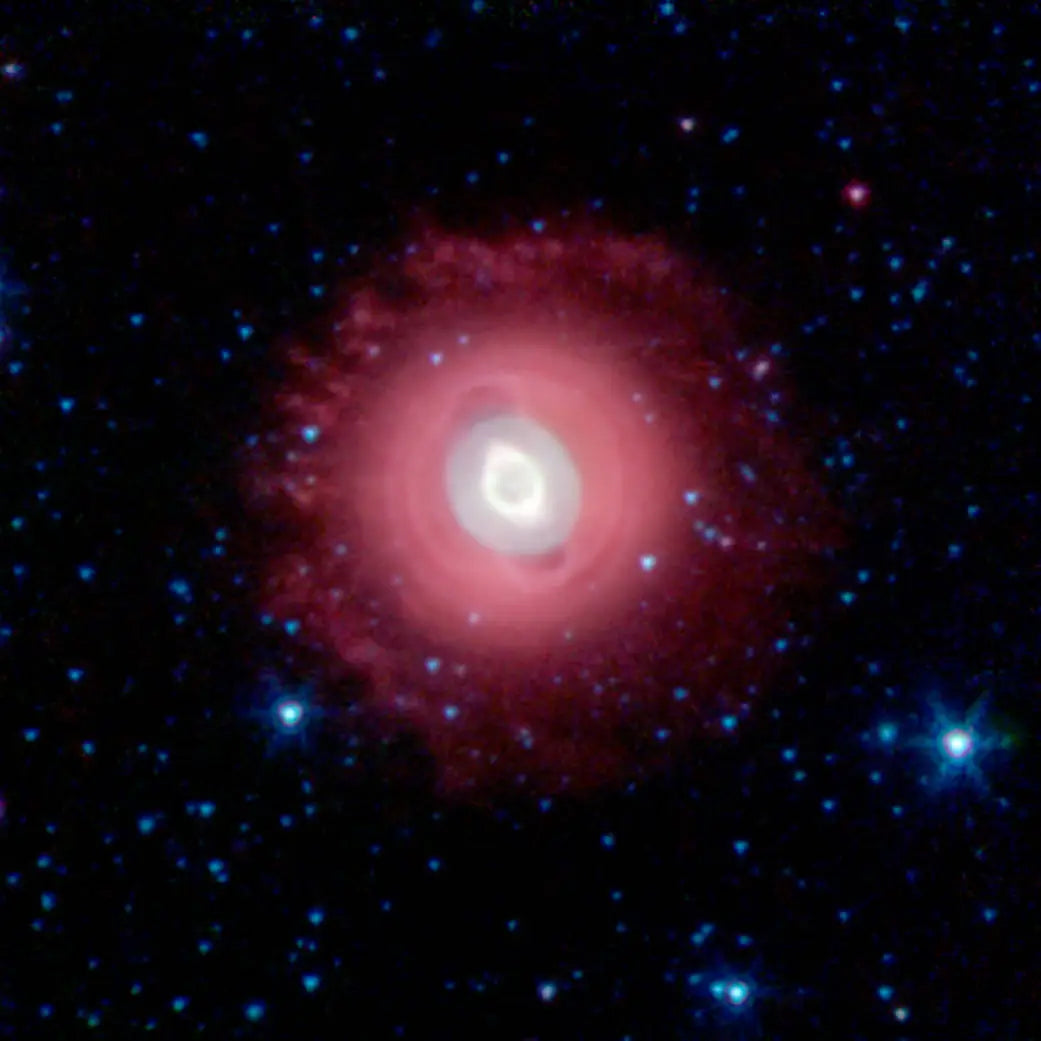
Astronz Object Of The Week: NGC 3242
This week, we're setting our sights on a hauntingly beautiful planetary nebula: NGC 3242, better known as the Ghost of Jupiter.
Floating in the constellation Hydra, the Ghost of Jupiter is the remains of a dying star — a glimpse into the distant future of our own Sun. Although it earned its nickname because of its round, planet-like shape, don’t let the name fool you. This glowing shell of gas is purely stellar, not planetary.
With a decent telescope, you can spot its eerie blue-green glow from your backyard. It shines at a relatively bright magnitude of around 8.6, making it one of the easier planetary nebulae to observe. Through a 6" or 8" Dobsonian, the Ghost of Jupiter appears as a soft, circular disk, almost looking like a tiny, pale marble frozen against the stars.
Key stats:
-
Distance: Approximately 1,400 light-years away
-
Diameter: Roughly 2 light-years across
-
Visibility: Best in autumn skies (Southern Hemisphere)
To bring out the best detail, try using a higher magnification once you’ve found it. Under steady seeing conditions, you might even glimpse the layered structure that makes it seem ghost-like.
Ready to hunt down the Ghost?
Check out our range of Dobsonian telescopes and filters — perfect tools for tracking down these faint celestial phantoms.
